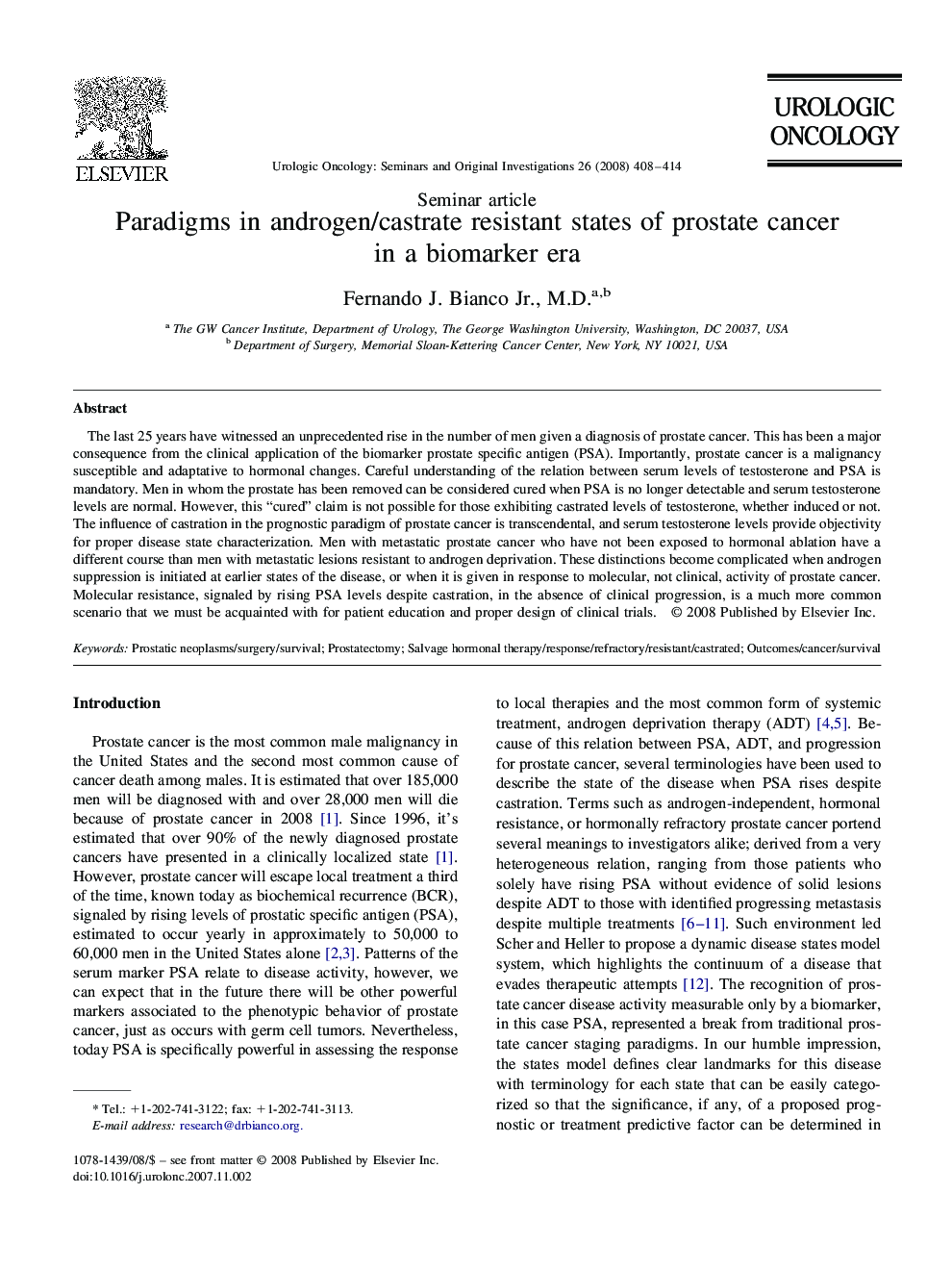| کد مقاله | کد نشریه | سال انتشار | مقاله انگلیسی | نسخه تمام متن |
|---|---|---|---|---|
| 4001225 | 1259401 | 2008 | 7 صفحه PDF | دانلود رایگان |

The last 25 years have witnessed an unprecedented rise in the number of men given a diagnosis of prostate cancer. This has been a major consequence from the clinical application of the biomarker prostate specific antigen (PSA). Importantly, prostate cancer is a malignancy susceptible and adaptative to hormonal changes. Careful understanding of the relation between serum levels of testosterone and PSA is mandatory. Men in whom the prostate has been removed can be considered cured when PSA is no longer detectable and serum testosterone levels are normal. However, this “cured” claim is not possible for those exhibiting castrated levels of testosterone, whether induced or not. The influence of castration in the prognostic paradigm of prostate cancer is transcendental, and serum testosterone levels provide objectivity for proper disease state characterization. Men with metastatic prostate cancer who have not been exposed to hormonal ablation have a different course than men with metastatic lesions resistant to androgen deprivation. These distinctions become complicated when androgen suppression is initiated at earlier states of the disease, or when it is given in response to molecular, not clinical, activity of prostate cancer. Molecular resistance, signaled by rising PSA levels despite castration, in the absence of clinical progression, is a much more common scenario that we must be acquainted with for patient education and proper design of clinical trials.
Journal: Urologic Oncology: Seminars and Original Investigations - Volume 26, Issue 4, July–August 2008, Pages 408–414